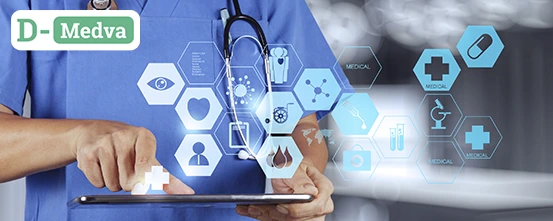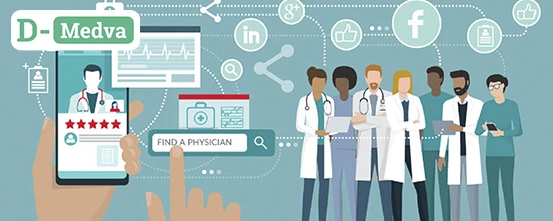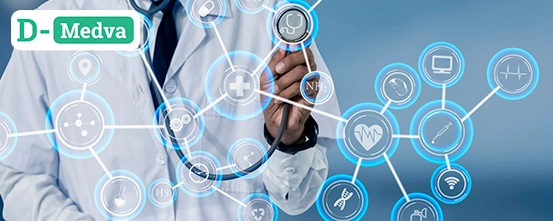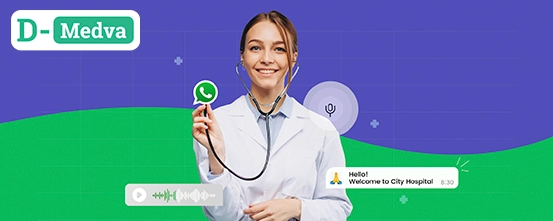Medical Marketing Strategies That Drive Patient Engagement
Medical marketing plays an essential role in connecting healthcare providers with patients in need of quality care. As digital transformation continues to shape industries, Medical Marketing Strategies have evolved to incorporate new approaches that enhance patient engagement. Successful marketing in healthcare requires a combination of trust-building, education, and technology-driven communication. Patients today seek reliable information before making healthcare decisions, making it crucial for healthcare providers to establish a strong presence and foster meaningful interactions. The Role of Digital Marketing in Healthcare The healthcare industry has witnessed a shift toward digital marketing due to changing patient behaviors. More individuals now turn to online resources for health-related information, seeking trusted providers through search engines and social media. Medical Marketing Strategies allow healthcare institutions to reach a wider audience while maintaining compliance with regulatory standards. Through search engine optimization, medical websites can provide valuable content that answers common patient questions and positions providers as experts in their field. Social media has also become an effective tool for healthcare marketing. Platforms such as Facebook and Instagram allow hospitals and clinics to engage with potential patients by sharing informative posts, testimonials, and health tips. Interactive content encourages discussions, helping organizations understand patient concerns and expectations. Healthcare professionals can use social media to build credibility, address myths, and foster an ongoing dialogue with their audience. Another key element of digital marketing is paid advertising, which enables targeted outreach to individuals actively searching for medical services. Platforms like Google Ads allow healthcare providers to display advertisements tailored to specific demographics and search intent. When used ethically and responsibly, paid advertising enhances visibility and directs patients to relevant healthcare solutions. Medical Marketing Strategies continue to shape how patients access care, making it a fundamental aspect of modern medical engagement techniques. Building Patient Trust Through Content Marketing Trust is an essential factor in healthcare decision-making. Patients seek providers who demonstrate expertise, transparency, and empathy. Content marketing serves as a bridge between healthcare professionals and patients by offering informative and engaging material that educates and reassures potential patients. Blog posts, articles, and videos covering medical topics help demystify health concerns and empower individuals to make informed choices. Video content has gained popularity as a powerful educational tool in Medical Marketing Strategies. Healthcare providers can use videos to explain complex medical procedures, introduce their team, and offer wellness tips. Patients often feel more comfortable seeking care when they can visually connect with a provider and understand the treatment process. The human element in video marketing fosters trust and strengthens patient-provider relationships. Email marketing remains an effective strategy for maintaining engagement with patients. Regular newsletters containing health tips, appointment reminders, and personalized messages keep patients informed and involved in their healthcare journey. Personalized communication demonstrates that healthcare providers value their patients’ well-being beyond their visits. Content marketing, when executed effectively, strengthens relationships and encourages long-term patient engagement. Enhancing Patient Experience with Technology Technology has transformed the way healthcare providers interact with patients. The integration of digital tools enhances communication, accessibility, and overall patient experience. Telemedicine has emerged as a vital solution, allowing patients to consult with healthcare professionals remotely. This advancement has improved access to care for individuals in remote areas and those with mobility challenges. Medical practices that offer virtual consultations demonstrate adaptability and patient-centric care. Online appointment scheduling has simplified the patient experience by eliminating the need for phone calls and long wait times. A user-friendly website with an integrated booking system allows patients to schedule appointments at their convenience. This efficiency increases patient satisfaction and reduces administrative burdens on healthcare staff. Digital check-ins and automated reminders further streamline the process, ensuring smooth patient interactions. Artificial intelligence has also contributed to patient engagement by enhancing customer service through chatbots and automated responses. AI-driven tools assist patients in finding information, scheduling visits, and receiving immediate support. These innovations improve patient interactions while allowing healthcare professionals to focus on delivering quality care. The incorporation of technology in Medical Marketing Strategies not only improves engagement but also reflects a commitment to modern and efficient healthcare solutions. Leveraging Patient Reviews and Testimonials Patient reviews and testimonials significantly impact the reputation of healthcare providers. Many individuals rely on online reviews when selecting a medical professional or facility. Positive patient experiences serve as powerful endorsements, influencing potential patients’ decisions. Encouraging satisfied patients to share their experiences builds credibility and fosters trust within the community. Healthcare providers can showcase testimonials on their website and social media pages to highlight their commitment to patient care. Video testimonials add a personal touch, allowing potential patients to hear firsthand accounts of successful treatments and positive interactions. Authentic stories create an emotional connection and reassure individuals seeking healthcare services. Addressing negative reviews professionally is equally important. Responding to concerns with empathy and offering resolutions demonstrates accountability. Potential patients appreciate providers who acknowledge feedback and strive for continuous improvement. Actively managing online reputation strengthens trust and positions healthcare organizations as patient-focused institutions. Optimizing Medical Marketing for Search Engines Search engine optimization plays a crucial role in making healthcare services more accessible to patients searching for information online. A well-optimized website increases visibility, attracting individuals seeking medical guidance. Using relevant keywords, high-quality content, and user-friendly navigation enhances search engine rankings and website traffic. Local SEO is particularly beneficial for healthcare providers, as patients often search for services within their geographical area. Optimizing Google My Business profiles ensures that clinics and hospitals appear in local search results. Accurate contact details, updated business hours, and patient reviews improve credibility and drive more appointments. Content relevance remains a key factor in SEO success. Providing well-researched articles, frequently asked questions, and detailed service descriptions improves online engagement. A strong SEO strategy allows healthcare providers to connect with patients actively seeking medical expertise, ultimately enhancing patient engagement. The Future of Medical Marketing Achieving Long-Term Success in Medical Marketing Medical marketing plays a fundamental role in driving patient engagement by combining digital innovation, trust-building strategies, and personalized communication. Digital marketing enhances visibility, content marketing educates and empowers patients,










